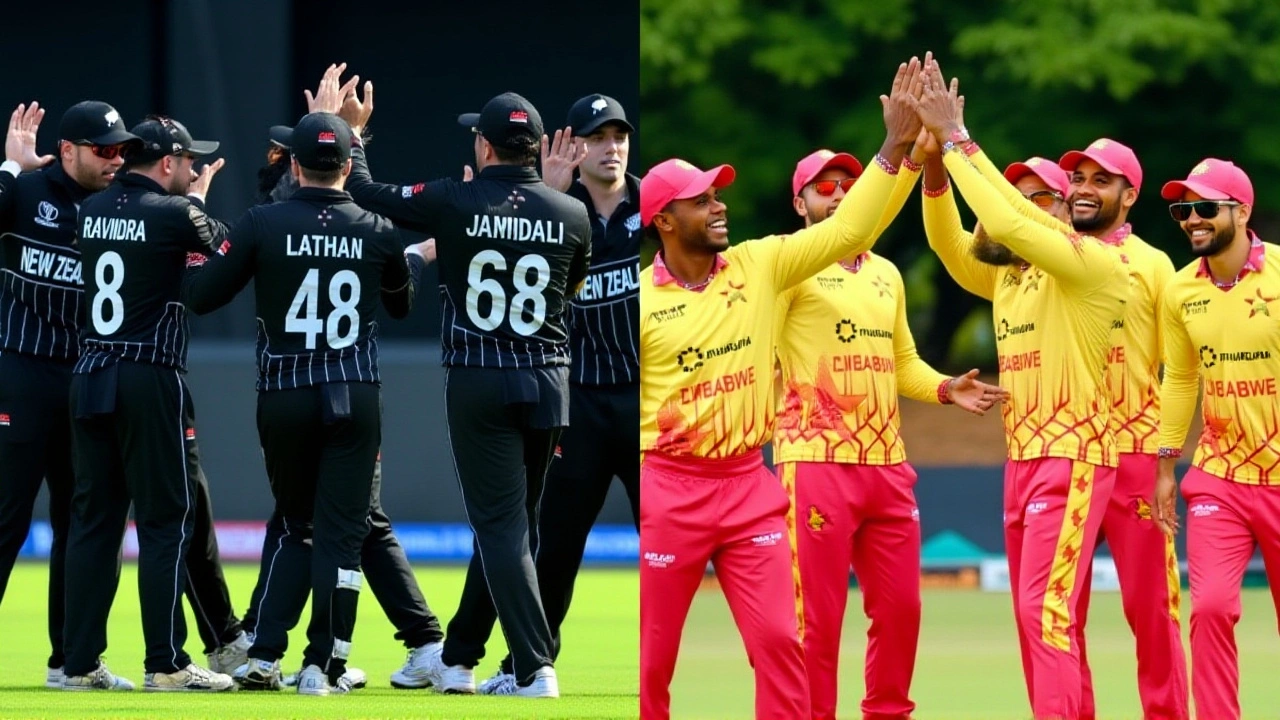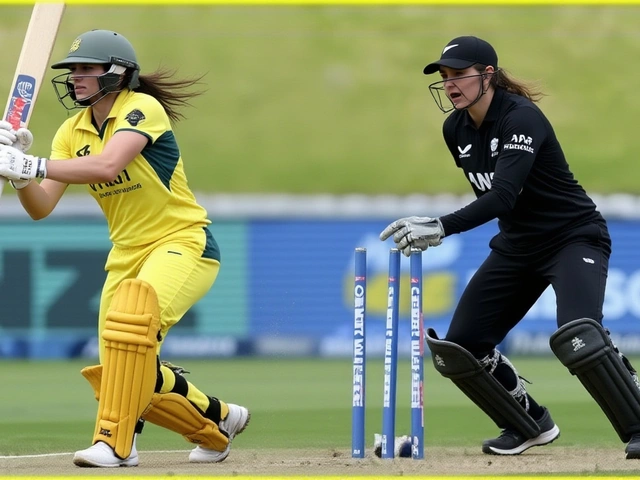On August 1, 2025, under the humid Caribbean sky in Barbados, Pakistan national cricket team outlasted the West Indies national cricket team by 14 runs in the first T20I of the Pakistan Tour of West Indies 2025Barbados. Chasing 179, the hosts fell short at 164 for 7, despite a late six from Shamar Joseph that sent the crowd into a frenzy. The win wasn’t pretty — it was gritty, tactical, and anchored by an all-round masterclass from Saim Ayub, who walked away with Player of the Match honors.
Pakistan’s Batting: Controlled Chaos
Pakistan’s innings was a study in controlled aggression. They lost early wickets — Sahibzada Farhan gone for 26 in the 3.2nd over, Fakhar Zaman following soon after for 28 — but Saim Ayub held the middle together like a veteran. His 57 off 38 balls wasn’t just about power; it was timing, placement, and nerve. Four fours and a six later, he had taken Pakistan from 26 for 2 to 107 for 3 in under 12 overs. His partnership with Fakhar Zaman, 50 runs in just 37 balls, was the engine of the innings. After Ayub fell, Hasan Nawaz and Mohammad Nawaz added quickfire 24s, but the real story was the finish. Faheem Ashraf’s 18-ball 24 kept the scoreboard ticking, even as Haris Rauf and Shaheen Shah Afridi offered little with the bat. Pakistan’s 178 for 6 looked defendable, but not easy — especially against a West Indies side known for explosive finishes.Bowling Battle: Spin Wins the War
West Indies’ chase started promisingly. Jewel Andrew and Johnson Charles put on 72 for the first wicket, looking every bit the part of a T20 powerhouse. But then came the spin. And with it, the collapse. Mohammad Nawaz was the architect of the downfall. His 3 for 23 in 4 overs didn’t just take wickets — he broke partnerships, choked the strike, and forced errors. Shai Hope, the anchor, was caught behind trying to work him to leg. Roston Chase, the finisher, was trapped leg before trying to sweep. And when Sherfane Rutherford and Romario Shepherd tried to accelerate, Nawaz had answers. His off-spin didn’t turn dramatically, but it moved just enough to deceive. Meanwhile, Saim Ayub returned to bowl his two overs and removed two dangerous middle-order batters — Gudakesh Motie and Sherfane Rutherford — for just 20 runs. Pakistan’s spinners, collectively, accounted for 5 of the 7 wickets. The pace attack, led by Shaheen Shah Afridi and Haris Rauf, was expensive but effective in containing the power-hitters early. As ESPN’s summary noted: “Pakistan’s spinners were the difference between the two sides as they derailed the West Indies chase of 179.”
Umpiring, Match Control, and the Bigger Picture
The match was officiated by local umpires Deighton Butler and Leslie Reifer, with Zahid Bassarath as third umpire. Sir Richie Richardson, the legendary former West Indies captain, served as match referee — a symbolic nod to the history between the two teams. There were no controversial decisions, no delays, no drama. Just clean, professional cricket. This win gives Pakistan a 1-0 lead in the three-match T20I series. Historically, Pakistan has held the upper hand — winning 2 of the last 3 meetings between the sides since 2022. But this wasn’t just about records. It was about momentum. With the T20 World Cup just months away, Pakistan showed they can win without their star all-rounder, Mohammad Rizwan, and without a dominant pace attack. They won with brains, balance, and belief.
What’s Next?
The second T20I is scheduled for August 4 in Trinidad. West Indies will need to rethink their middle-order approach — too many top-order failures and too little support for the finishers. Pakistan, meanwhile, will look to build on their spin depth. Can Haris Rauf find his rhythm? Will Mohammad Nawaz continue to outthink the batters? And can Saim Ayub, now a regular in the T20I side, turn this into a breakthrough series? The crowd in Barbados stayed until the final ball. They cheered every boundary, every wicket, every desperate dive. They knew they’d witnessed something real — not just a win, but a statement.Frequently Asked Questions
How did Saim Ayub’s performance impact Pakistan’s chances in the series?
Saim Ayub’s all-round display — 57 runs at 150 strike rate and 2 wickets for 20 runs — wasn’t just match-winning; it was series-defining. With Pakistan’s batting often inconsistent in overseas conditions, his ability to anchor and accelerate gives them a reliable middle-order option. If he maintains this form, he could become the X-factor Pakistan needs heading into the T20 World Cup.
Why was Mohammad Nawaz more effective than the pace bowlers?
West Indies’ top order thrives against pace, but struggles against accurate, slower off-spin. Nawaz’s variations in flight and pace disrupted timing, forcing risky shots. His economy rate of 5.75 was the best among Pakistan’s bowlers, while Haris Rauf and Shaheen Shah Afridi conceded over 10 runs per over. In T20 cricket, controlling the middle overs is often more valuable than explosive pace.
What’s the historical context between Pakistan and West Indies in T20Is?
In the last three years, the two teams have met in three T20Is, with Pakistan winning two and West Indies one. Pakistan’s last win in the Caribbean came in 2021, when they chased 175 in Jamaica. This 2025 victory extends their dominance, especially in away conditions — a sign they’re adapting better to overseas pitches than in previous cycles.
Did the umpiring affect the outcome of the match?
No. The local umpiring team — Deighton Butler and Leslie Reifer — made no controversial decisions. The third umpire, Zahid Bassarath, confirmed two close run-outs without error. Match referee Sir Richie Richardson noted the game was conducted with “high standards of professionalism.” The result was decided by skill, not officiating.
How does this win affect Pakistan’s World Cup preparations?
This win boosts Pakistan’s confidence in overseas conditions — a key concern ahead of the T20 World Cup in June 2026. Their ability to win with spin-heavy tactics on Caribbean pitches suggests they’ve solved a long-standing issue: adapting to slow, turning tracks. It also gives depth to their batting, with Ayub and Nawaz emerging as reliable options beyond the top three.
What’s the significance of playing in Barbados for this series?
Barbados is a traditional stronghold of West Indies cricket, with a passionate crowd and a pitch that often favors fast bowlers. Pakistan winning here, especially with spinners leading the charge, sends a message: they’re no longer intimidated by hostile environments. It’s a psychological edge — and one that could ripple through the rest of the series.





